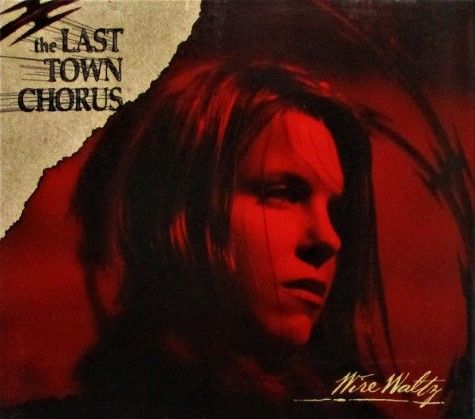Last weekend I interviewed Megan Hickey of The Last Town Chorus. While I received my copy of Wire Waltz about a week ago, I haven't had time to write much about it until now.
When I first heard about Hickey and the lap steel guitar she plays, my initial reaction was one of novelty. Was it a send-up of country? Hawaiian music? Sacred steel? After hearing her music, I find that there is perhaps something lurking underneath layers that's akin to country but, on the surface, it is only the instrumentation that Wire Waltz has in common with that music. The title track opens the album and features the omnipresent lap steel and a lonesome fiddle but the sound here is more expansive than anything country. Hickey's voice draws Mazzy Star's Hope Sandoval to mind and it lingers breathlessly on the lyrics. It's a slow song – almost mournful - and sets the tone for the rest of the album.
"You" follows. Just when it gets going, it comes to a crawl, perhaps mimicking the adventures of the lovelorn singer. With barely a pause, we are ushered into a cover of David Bowie's early 80s hit "Modern Love". I thought this an odd choice after seeing some photos of Hickey. They don't betray her 32 years in the least. Upon finding out her age, it made more sense - this is a song she heard as a kid on the radio. While the melody is instantly recognizable, her treatment of the music is nothing like the original with the aching steel guitar solo a highlight. Too bad it is cut so short. However there is some great soloing in "It's Not Over", the sparseness of which would make Pete Townshend proud. Hickey proceeds to cut into it with angular, dissonant bursts. Her singing makes the song part protest, part lamentation. There's a steely resolve as she asserts that a relationship has not ended. But, after the powerfully simplistic solo, she repeatedly intones "it's not over" as if it were a nursery rhyme.
The cascading notes of the lap steel alternate with washes of fuzz on "Boat", which is one of my favorites on the album. Hickey's playing orchestrates the drama here quite effectively and, when she sings "I want us to disappear in a wave", you can't help believe her. If she was pleading on the previous songs, then her desires here are tinged with a bit of hope. The youthful nostalgia of "Huntsville, 1989" is the lone song here that I really can't get my head around. The programmed percussion is a bit too rigid with the rim shots seeming a bit too much like modern country for my taste. "Wintering In Brooklyn" seems the most conventional song of the bunch as it skips along. It also features the closest thing to Hickey cutting loose on her instrument.
There is a very plaintive honesty about this album that attracts me to it. Hickey's voice cuts to the bone with its deep longing. Sonically, the music on Wire Waltz is rather sparsely populated but there's a certain lushness to it that reminds me of Emmylou Harris' Wrecking Ball which was produced by Daniel Lanois. The performances sometimes sound like they could easily become overwrought but they never do. Rather they tread a very raw landscape and manage to avoid drifting into self-effacing sentimentality.

No comments:
Post a Comment